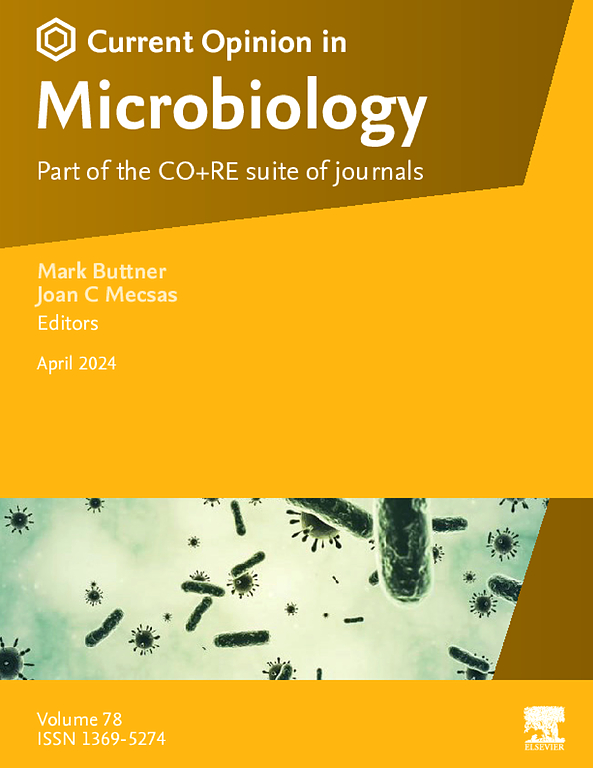核相关蛋白在介导环境变化反应中的作用
IF 7.5
2区 生物学
Q1 MICROBIOLOGY
引用次数: 0
摘要
细菌面临着各种环境挑战,如温度、pH值和渗透压的变化,以及抗生素的暴露,这些都是生存所必需的适应性反应。染色体结构核相关蛋白(nap)是这些反应的关键,因为它们在全球基因调控中起作用。本文综述了环境挑战与nap之间的功能相互作用,以及nap介导的适应性反应。具体来说,物理化学环境因素会改变NAP基因的转录水平并影响蛋白质活性,从而促进细菌通过短期策略进行适应。此外,nap通过影响水平转移基因的表达和整合到宿主基因组中来调节水平转移基因,例如那些与抗生素耐药性和毒力有关的基因。通过这种长期策略,nap既有助于细菌的应激恢复能力,也有助于细菌性状的进化,确保在环境胁迫下生存,同时通过水平基因转移促进遗传多样性。本文章由计算机程序翻译,如有差异,请以英文原文为准。
The role of nucleoid-associated proteins in mediating responses to environmental changes
Bacteria face diverse environmental challenges, such as changes in temperature, pH, and osmolarity, and exposure to antibiotics, which necessitate adaptive responses for survival. The chromosome-structuring nucleoid-associated proteins (NAPs) are key to these responses owing to their role in global gene regulation. In this review, we summarize the functional interplay between environmental challenges and NAPs, and the adaptive responses mediated by NAPs. Specifically, physicochemical environmental factors modify the transcription level of NAP genes and affect protein activity, which facilitates bacterial adaptation via a short-term strategy. Additionally, NAPs regulate horizontally transferred genes, such as those involved in antibiotic resistance and virulence, by affecting their expression and integration into the host genome. Via this long-term strategy, NAPs contribute to both stress resilience and the evolution of bacterial traits, ensuring survival under environmental stress while facilitating genetic diversity through horizontal gene transfer.
求助全文
通过发布文献求助,成功后即可免费获取论文全文。
去求助
来源期刊

Current opinion in microbiology
生物-微生物学
CiteScore
10.00
自引率
0.00%
发文量
114
审稿时长
6-12 weeks
期刊介绍:
Current Opinion in Microbiology is a systematic review journal that aims to provide specialists with a unique and educational platform to keep up-to-date with the expanding volume of information published in the field of microbiology. It consists of 6 issues per year covering the following 11 sections, each of which is reviewed once a year:
Host-microbe interactions: bacteria
Cell regulation
Environmental microbiology
Host-microbe interactions: fungi/parasites/viruses
Antimicrobials
Microbial systems biology
Growth and development: eukaryotes/prokaryotes
 求助内容:
求助内容: 应助结果提醒方式:
应助结果提醒方式:


